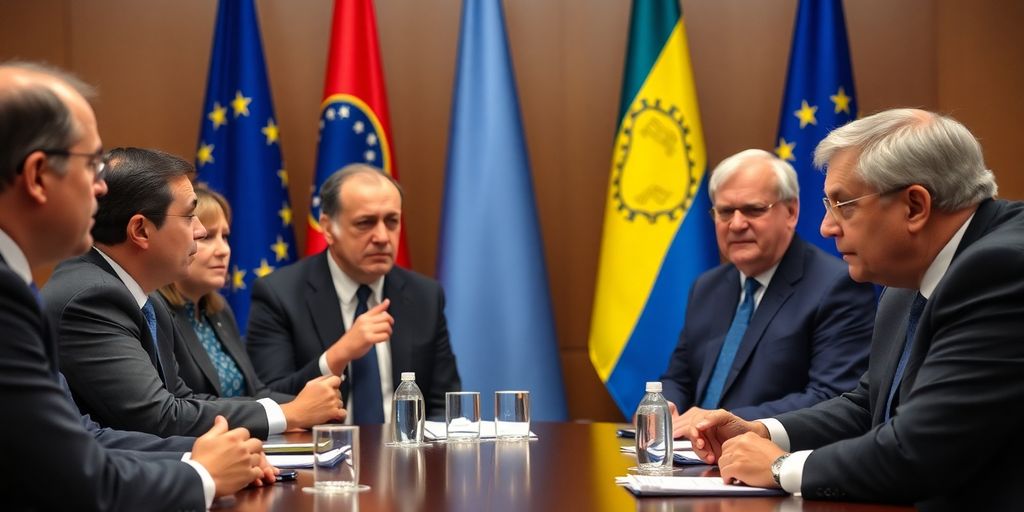In a significant diplomatic push, international leaders have called on Kosovo to fulfill its commitments to the European Union, emphasizing the importance of dialogue with Serbia for the region’s stability and EU integration. This comes amid ongoing political challenges within Kosovo, including a parliamentary crisis and stalled negotiations with Serbia.
Key Takeaways
- NATO and EU leaders stress the urgency of normalizing relations between Kosovo and Serbia.
- Kosovo’s political instability complicates its EU membership aspirations.
- International support hinges on Kosovo’s commitment to dialogue and reforms.
International Calls for Action
During a recent visit to Kosovo, NATO Secretary-General Mark Rutte highlighted the alliance’s commitment to peace in the region, urging both Kosovo and Serbia to expedite their dialogue. Rutte stated, "Normalization brings greater stability, more investment opportunities, and lasting security across the whole region."
European Council President Antonio Costa echoed these sentiments, emphasizing that Kosovo’s path to EU membership is contingent upon fulfilling its commitments, particularly in its dialogue with Serbia. Costa remarked, "Kosovo’s place is in the European Union family, but it also requires you to deliver on your commitments."
Political Landscape in Kosovo
Kosovo is currently facing a political crisis, with a new parliamentary chair yet to be elected three months after elections. Prime Minister Albin Kurti, who is operating under a technical mandate, is under pressure to form a stable government capable of engaging in meaningful dialogue with Serbia.
The political landscape is characterized by:
- Fragmented Parties: Multiple political parties are vying for power, complicating coalition-building efforts.
- Economic Challenges: Kosovo remains one of the poorest countries in Europe, with a GDP of less than 6,000 Euros per person.
- Stalled EU Integration: Kosovo is the last among the Western Balkans to join the EU, with its candidacy submitted in 2022.
The Importance of Dialogue
The dialogue between Kosovo and Serbia, mediated by the EU since 2013, has seen little progress in recent years. Both nations aim to join the EU, but normalization of relations is a prerequisite for advancement. Key issues include:
- Recognition of Sovereignty: Serbia does not recognize Kosovo’s independence, declared in 2008.
- Establishment of Diplomatic Relations: Both countries need to establish formal diplomatic ties to facilitate cooperation.
- Implementation of Previous Agreements: There are outstanding commitments from both sides that need to be addressed to move forward.
Conclusion
The international community’s calls for Kosovo to fulfill its EU commitments underscore the critical need for political stability and constructive dialogue with Serbia. As Kosovo navigates its internal challenges, the path to EU integration remains contingent on its ability to engage effectively with its neighbor and implement necessary reforms. The coming months will be pivotal for Kosovo as it seeks to align itself with European standards and secure its place in the EU family.
Sources
- NATO’s Rutte urges Kosovo and Serbia to speed up dialogue, normalise ties, Reuters.
- Antonio Costa urges Kosovo to fulfil EU commitments during Western Balkans tour, Euronews.
- What’s Behind The Growing Number Of Muslim-To-Catholic Conversions In Kosovo, Worldcrunch.
- Kosovo elections will decide who will lead stalled talks with Serbia and manage a battered economy, AP News.
- Video. Costa urges Kosovo to fulfil EU commitments on Western Balkans tour, Euronews.






